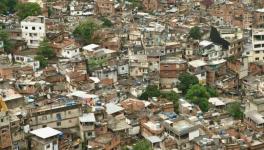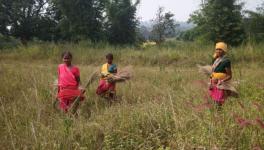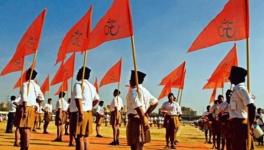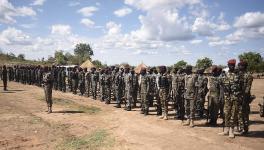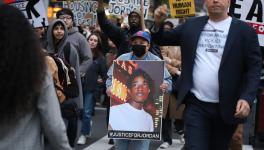How Anger Of Tribals, Minorities And Working Class Is Defining This Lok Sabha Election In Jharkhand
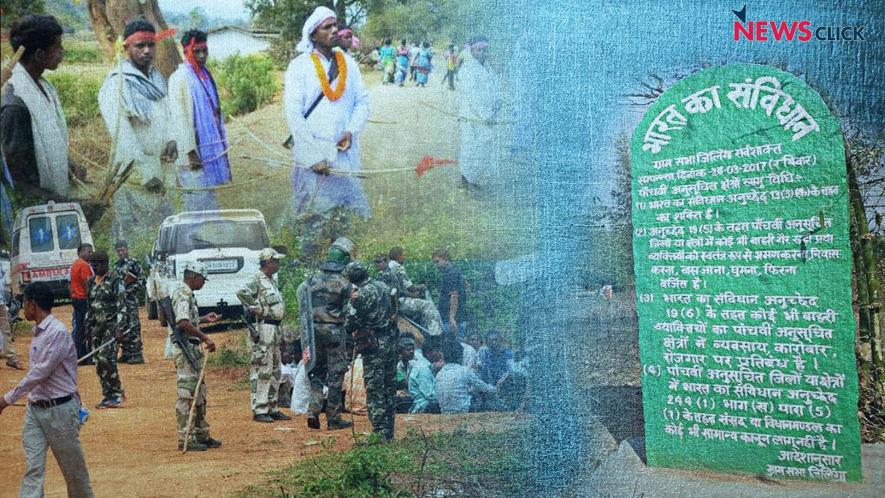
Ranchi: As Jharkhand is all prepared for the third phase of Lok Sabha Elections, in which voters from Dhanbad, Giridih, Singhbhum and Jamshedpur constituencies will exercise their franchises. Last week people of Ranchi, Khunti, Hazaribagh and Koderma have cast their vote.
In the fourth and last phase, on May 19, voters of Dumka, Godda and Rajmahal will vote.
But the tribals, minorities and working class seem to be really angry not only with Narendra Modi led BJP government in center, but with Raghubar Das led BJP government in Jharkhand also. The question is, why?
The tribals seem to be the most discontent with the present government. It is to be remembered that it was for the tribals, that the state was carved out from Bihar almost two decades back.
Here assembly polls took place within six months of formation of government in the centre. So, in 2014 Narendra Modi government was formed in May, and in December, BJP used Modi as the face of the state election, which helped them become the largest party in the state. After the election, BJP ended the concept of a tribal being at the helm of the affairs of Jharkhand and made Raghubar Das, a native of Chattisgarh as chief minister.
Following which Raghubar Das took many decisions in the last four and a half years which were against the tribals of Jharkhand. The land acts— Chotanagpur Tenancy Act (CNT) and Santhal Pargana Tenancy (SNT) Act were amended to help industrialists. Land banks were created for Gair Majrua lands which again directly impacted the tribals who were the main beneficiary of such lands. Attempts to change the Forest Rights Act have also been made. The anti-conversation bill has been introduced to stop conversion of tribals in Jharkhand.
Tribals were also targeting during Pathalgadi movement when villagers in Khunti and in some other districts of Jharkhand started their Pathalgadi movement to reclaim their rights under PESA act.
Leave aside the tribal community or their issues, the majority government in Jharkhand and centre did not do anything for Saber, a nearly extinct tribal community which mostly reside around Jamshedpur.
Jharkhand Janadhikar Mahasabha (JJM), a social organization for tribal and civil right, as recent as in the May month, visit Saber community areas and found that they are living in the worst condition and several Saber people and their children are forced to live in inhuman condition. None of the state or central government schemes is reaching the community.
The tribal community has been made to live on the mercy of the majority, believes the community Even as the Lok Sabha elections were being conducted, a tribal had been lynched to death and three were injured severely.
The condition of the minority community is neither better. Several people from the community have been lynched since 2016, either on of eating beef or cattle trading or allegedly lifting children.
Minorities have been stopped from calling Azaan (call for namaz) in Koderma. Repeatedly, communal incidents have taken place in various parts of Jharkhand and including its state capital Ranchi.
Besides these two communities, the working class, including the para-teachers, sahiyas had a long battle for their demands, but it did not met during the tenure of Raghubar Das government in fact suppressed violently. While staging protest many para-teachers died before the house of ministers and MLA, but the government did not meet their actual demands.
In most of the vacancies, outside Jharkhand people were given preference over locals. For long, state was divided in two separate zones. Outside Jharkhand people where allowed in the recruitment of 11 districts under the Jharkhand’s employment policy.
Raghubar Das government also repeatedly failed in their own promises on several issues, they never met target of cashless or ODF (open defecation free) Jharkhand or even providing electricity to every home till March, 2019.
Due to strong resentment against BJP government, in centre and state, the turnout of locals in Narendra Modi or Amit Shah rallies remained thin. During an Amit Shah rally, people had been requested to sit on the vacant chair repeatedly on the microphone but masses did not turn up.
Also, the reverse has been happening since the time of Sangarh Yatra to recent election rallies, large crowd have gathered during rallies of Jharkhand Mukhti Morcha (JMM)’s working president Hemant Soren and other opposition leaders in the state.
Get the latest reports & analysis with people's perspective on Protests, movements & deep analytical videos, discussions of the current affairs in your Telegram app. Subscribe to NewsClick's Telegram channel & get Real-Time updates on stories, as they get published on our website.









